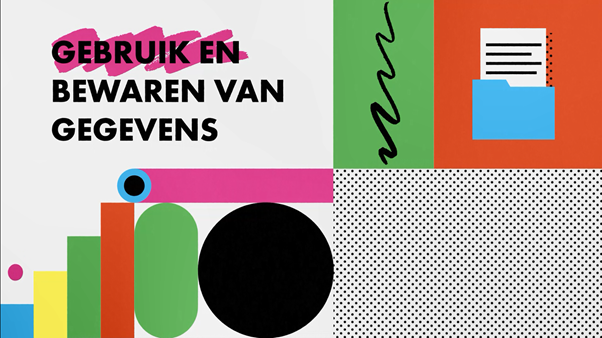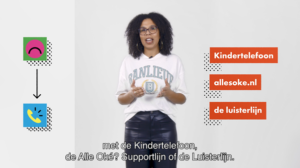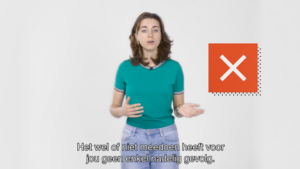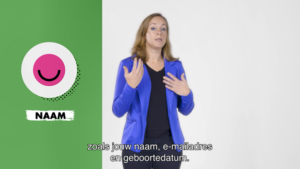How informative videos can enhance information accessibility for and better representation of youth

How informative videos can enhance information accessibility for and better representation of youth
Dr. Lysanne te Brinke, Kayla Green, Fabienne van Rossenberg
Informed consent is a core value of scientific research. Participants have the right to be informed about the purpose of the study, data collection and processing methods, data storage, and privacy. Participants also need to understand that participation in research is voluntary and that they have the right to withdraw their consent. Up until now, this information was offered via (digital) informed consent letters, which can be quite difficult to read for adolescents. As a result, not all adolescents are reached. Hence, the Erasmus SYNC Lab has decided to enhance information accessibility for youth via informative videos.
Selection bias in research
Selection bias forms a major limitation in various scientific studies within the field of developmental psychology and neuroscience. For example, adolescents from middle to high socioeconomic backgrounds are frequently over-represented in research samples. The same applies to adolescents who attend (pre) academic educational programmes. There are several factors that may play a role in the lack of diversity in research samples. A potential factor is the outdated and unnecessarily complex way of requesting consent via information letters. These letters are often difficult to read, and due to their lengths, they can be quite intimidating for adolescents. For example, we have noticed that in recent survey studies a large group of adolescents who started with the online informed consent forms, dropped out halfway through. Although we do not know who these adolescents are nor do we exactly know what drives them to stop, it is still hypothesized these dropouts contribute to selection bias in our samples.

Diversity matters
In the Erasmus SYNC Lab, we value the importance of diverse and inclusive research. It is our common goal to have representative research samples of Dutch society. To achieve this, we have formulated goals. Specifically, we aim to 1) reach more adolescents with a bi- or multicultural background, 2) reach more adolescents who are following or have followed practical education, and 3) use other ways, such as vlogs and videos, to share information with adolescents. With our new informative videos, we contribute to these three goals. In academia, the use of information films is a novel way of communicating with adolescents. Additionally, these videos give us the opportunity to increase familiarity between the researchers and the potential participants.

Video development together with adolescents
The informative videos were created in close collaboration with adolescents. Through the YoungXperts platform, researchers organized two youth panel sessions with a diverse group of adolescents (aged 17 to 23) from Rotterdam. In the first meeting, the existing information letters, were discussed. Adolescents indicated that they don’t feel like reading the long texts, and that adolescents who experience a language barrier may become discouraged from the letters. They also mentioned that they are unable to estimate how much they could trust the researchers based on the written text. We then presented examples of existing informative videos to the youth panel and asked which format they prefer. They were very clear about this: “The films must contain a real person who explains the information supported by animations”.
Based on the youth panel’s input, the researchers started working on the script for the videos. The existing information letters, which were drawn up together with the Ethics Committee, have been leading in terms of content. Media company Public Cinema made a draft of the design. In a second youth panel session, we presented the content and design to them. Finally, after the plan was approved by the youth panel, the final videos were recorded.

Videos complement information letters
The Erasmus SYNC lab will use the videos as a supplement to the existing information letters, thus not as a replacement. This is important, because it gives adolescents freedom of choice in the way they want to be informed. Access to the information letters and videos remains possible after consent has been given. Although the videos were initially developed for adolescents over the age of 16, the videos can also be used to obtain parental consent for minors. In the future, we will also investigate the possibility of translating the videos, for example by adding Arabic and Turkish subtitles.
Contact
Erasmus University Rotterdam
Mandeville Building T13
Burgemeester Oudlaan 50
3062 PA Rotterdam, the Netherlands

